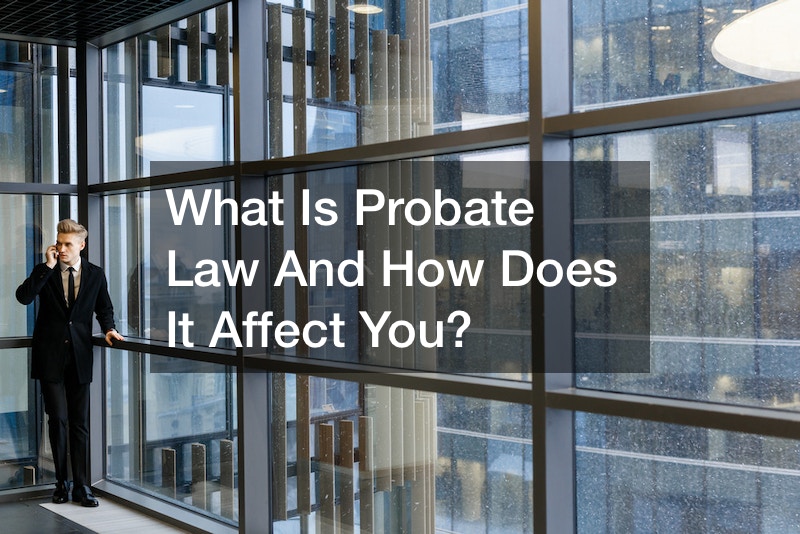What Is Probate Law And How Does It Affect You?

Probate lawyers can help you work out the details of the probate process if you find yourself in the middle of one. They may explain to you things such as the process of probate and trust administration as well as the disposition of property in a will. Once you know a bit about the processes and terms, you may know if you need to get a probate avoidance estate attorney to help you with a case of probate avoidance trust or something similar.
You should also do some research by looking online for things like “statute of limitations to sue executor” and more. Ask your lawyer any questions that you may have about the process. When you learn what you need to know, you can take the next steps more confidently. As a result, you’ll get the best outcome and can safeguard your future.
Remember that this process may take a long time to complete and be ready to be patient. Trying to rush will only cause you frustration, so try to do what needs to be done at each steps while keeping the process at the back of your mind. Don’t let it consume you and make it hard for you to keep up with your normal life.

Probate is a legal procedure that validates a will and selects an executor to handle the estate’s administration and distribution of assets. Whether a probate process is required depends on the state laws and location. However, it’s essential to consult probate lawyers offices to know all about probate law.
In the absence of a valid will or alternatives to wills, the probate procedure is in place to ensure the dead person’s intentions are met. The probate process can be lengthy and costly, especially if there’s a disagreement or if assets from the estate must be sold to cover debts. However, the estate’s details determine how long and how much money probate takes. If there isn’t much of an estate to probate, the costs won’t be too high. If you want to know that “avoiding probate” will save you money, a lawyer specializing in estate planning or probate can help.
After probate is granted, the deceased’s estate must be handled and distributed according to probate law. After probate what happens is that a petition is filed in local courts. Then, a personal representative handles and distributes the estate. However, they must swear to follow the law under oath while distributing the deceased’s assets.

Have you recently decided that, in order to protect the future of your children and grandchildren, you ought to speak with an attorney about probate and estate administration? If so, you aren’t alone. In fact, thousands of people across the country every single day come to this same conclusion. Sometimes the decision is precipitated by hearing of someone passing away without a will or any sort of estate planning at all and seeing the hardship that their family is left with, and other times starting a family leads people to consider the future more. Whatever the situation is, having probate and trust administration discussions with an attorney is a great place to start. Here are a few things to keep in mind:
1. Probate Law – Put simply, when someone dies, there is a legal process called probate that includes items such as proving validity of that person’s will and inventorying that person’s property. Although this may sound straightforward, a study by the Wisconsin State Bar showed that a complicated will could take up to two years to probate, and even a simple one could take up to six months. One thing is for sure when it comes to the probate process; you will want to have an attorney involved every step of the way. Lucky for you there are thousands of attorneys who specialize in probate and trust administration.
2. Estate Law – Would it surprise you to know that over half of American adults do not currently have a will or estate plan in place? Don’t let yourself fall into that statistic. Your estate is essentially what your assets are worth. Remember that assets can include legal rights, interests and any property entitlements you may have. If you aren’t sure what your estate looks like, a probate and trust administration attorney can help.
3. Conservatee Law – Sometimes estate planning happens out of nowhere because a loved one becomes mentally or medically unable to make their own decisions. The person who the court appoints to handle that loved one’s estate is called the conservator. Conservatee and conservator law is complex and best handled by an attorney. Most lawyers who specialize in probate and trust administration will be well versed in the ins and outs of conservatee law.

Today, nearly 75% of adult Americans under the age of 34 do not have a will in place, and that is a statistic that desperately needs to change. Dying intestate, or without a will, causes unneeded financial and emotional stress on your family and no ones wants that. If you have questions about the future of your estate, write them down and have a discussion with a probate and trust administration attorney.
